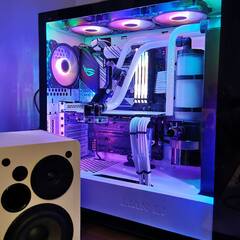"What if you were to give us even more money?" - Intel announces Intel On Demand
-
Topics
-
V_1313 ·
Posted in Troubleshooting0 -
IR76 ·
Posted in Programs, Apps and Websites0 -
The Blue Cryptid ·
Posted in Troubleshooting0 -
0
-
5
-
3
-
worstalentscout ·
Posted in Storage Devices1 -
0
-
vortexx21 ·
Posted in Power Supplies5 -
0
-
















Create an account or sign in to comment
You need to be a member in order to leave a comment
Create an account
Sign up for a new account in our community. It's easy!
Register a new accountSign in
Already have an account? Sign in here.
Sign In Now